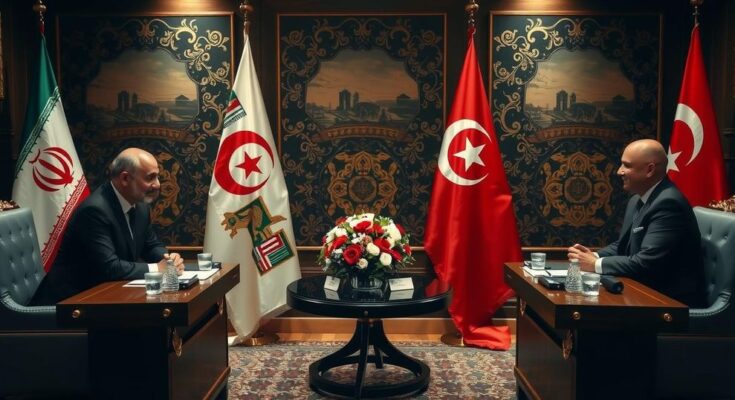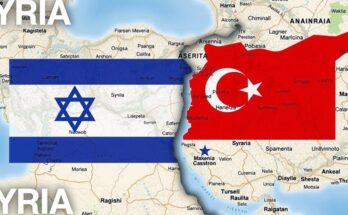An Iranian delegation, led by Ibrahim Azizi, is visiting Algeria and Tunisia to foster cooperation and expand Tehran’s presence in North Africa. The visits signify a thawing of previously strained relations, especially in light of recent diplomatic engagements and policy shifts reflected in Tunisia’s foreign relations.
A delegation from Iran, under the leadership of Ibrahim Azizi, chair of the Parliamentary National Security and Foreign Policy Committee, has embarked on a week-long mission to Algeria and Tunisia to enhance cooperation and elevate Iran’s presence in North Africa. The delegation, which includes Iranian Ambassador to Algeria, Mohammad Reza Babai, commenced its activities in Algeria, engaging with senior political figures such as Foreign Minister Ahmed Attaf and various parliamentary committee chairpersons. Discussions have revolved around strengthening diplomatic relations and fostering collaboration in areas such as agriculture, tourism, and education, particularly in light of recent geopolitical challenges facing the region.
The backdrop of this engagement is characterized by a historically tumultuous relationship between Algeria and Iran. Tensions peaked during Algeria’s civil conflict in the 1990s, leading to the severance of diplomatic ties due to Iranian support alleged to have been provided to extremist factions. Although relations were revived in the early 2000s, they remained relatively sluggish until notable exchanges began last year, signaling a warming in bilateral ties.
The Iranian delegation’s subsequent visit to Tunisia is poised to signify a shift in Tunisia’s foreign policy orientation, likely moving away from Western influence. This change was notably marked by President Kais Saied’s unprecedented visit to Iran in May, the first for a Tunisian head of state in nearly six decades. Furthermore, Tunisia’s recent decision to ease visa restrictions for Iranian nationals underscores the evolving dynamics between the two nations, suggesting a broader trend of rapprochement in the region.
The delegations’ visits highlight a significant evolution in the Middle Eastern geopolitical landscape, with Iran aiming to solidify its influence in North Africa amidst shifting allegiances. Historically, Iran’s relations with both Algeria and Tunisia have been fraught with tension, particularly due to past accusations involving support for extremist groups in Algeria’s civil conflict. However, recent diplomatic efforts reflect a concerted move towards cooperation on shared regional concerns, including issues affecting the Islamic world and a focus on economic collaboration.
In summary, the Iranian delegation’s engagements in Algeria and Tunisia represent a critical initiative towards strengthening bilateral relationships and expanding Iran’s influence in North Africa. The historical context of their relations, marred by past conflicts, appears to be giving way to a more collaborative framework, driven by mutual interests in regional stability and economic development. The expanded dialogue reflects broader shifts in foreign policy that could reshape alliances in the region.
Original Source: www.thenationalnews.com




